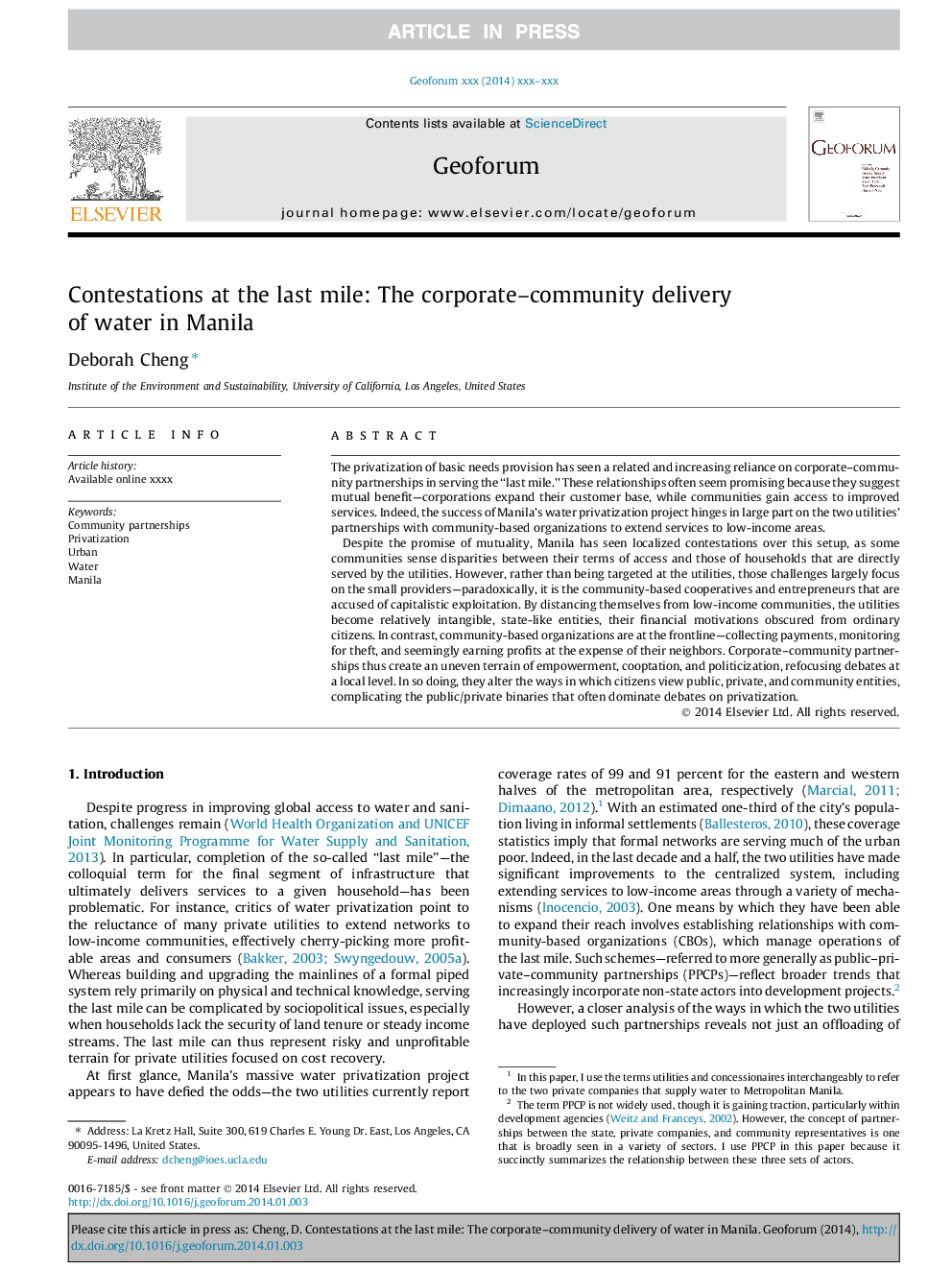| Article ID | Journal | Published Year | Pages | File Type |
|---|---|---|---|---|
| 5073987 | Geoforum | 2015 | 8 Pages |
Abstract
Despite the promise of mutuality, Manila has seen localized contestations over this setup, as some communities sense disparities between their terms of access and those of households that are directly served by the utilities. However, rather than being targeted at the utilities, those challenges largely focus on the small providers-paradoxically, it is the community-based cooperatives and entrepreneurs that are accused of capitalistic exploitation. By distancing themselves from low-income communities, the utilities become relatively intangible, state-like entities, their financial motivations obscured from ordinary citizens. In contrast, community-based organizations are at the frontline-collecting payments, monitoring for theft, and seemingly earning profits at the expense of their neighbors. Corporate-community partnerships thus create an uneven terrain of empowerment, cooptation, and politicization, refocusing debates at a local level. In so doing, they alter the ways in which citizens view public, private, and community entities, complicating the public/private binaries that often dominate debates on privatization.
Related Topics
Social Sciences and Humanities
Economics, Econometrics and Finance
Economics and Econometrics
Authors
Deborah Cheng,
